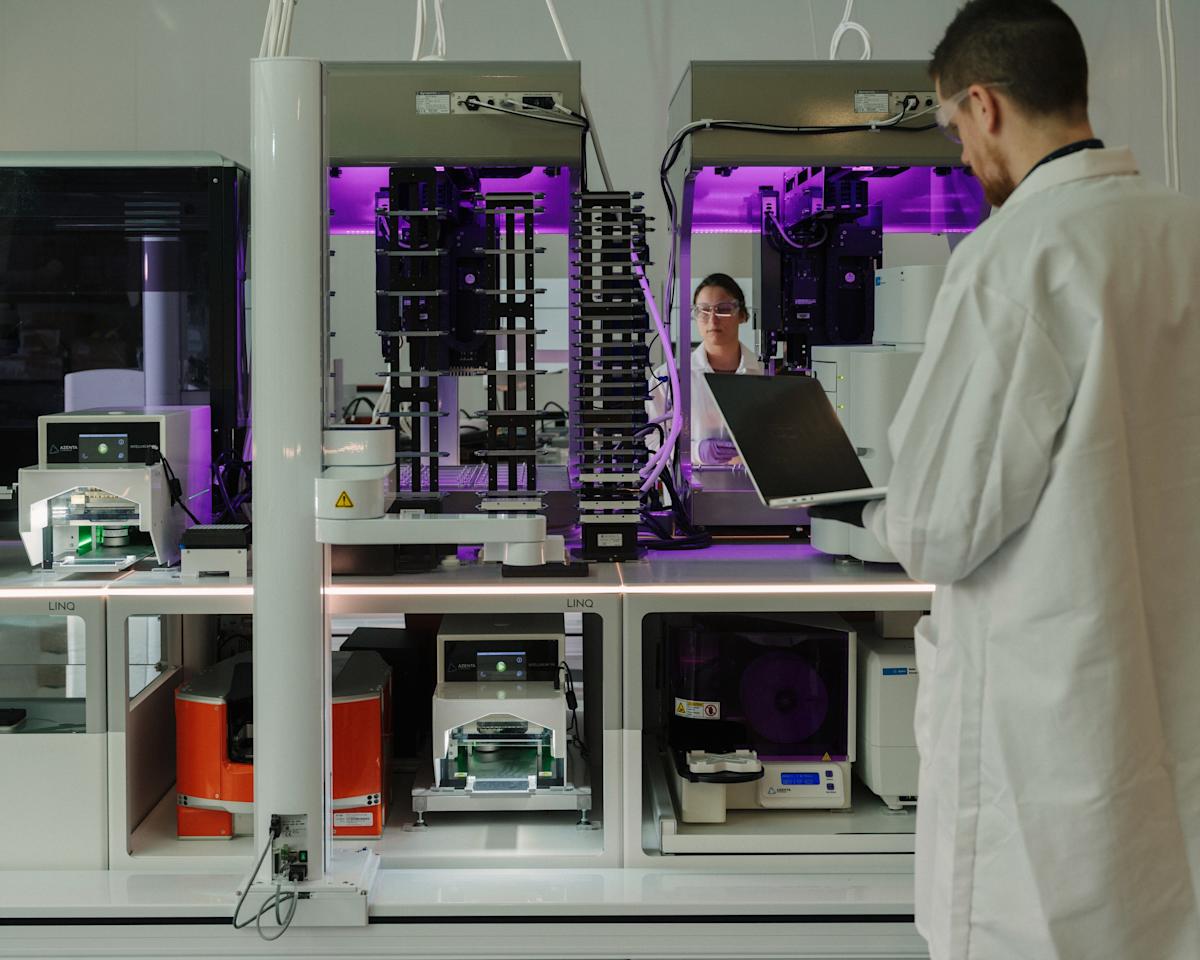Investors Bet $235 Million on Bringing AI to Scientific Research
Scientists working in Lila Science’s labs.
(Bloomberg) — The latest artificial intelligence unicorn is Lila Sciences, a biotechnology company that promises to speed the rate of scientific discovery using new AI tools.
Most Read from Bloomberg
The startup announced it had raised $235 million at a roughly $1.23 billion valuation.
Lila emerged from stealth mode in March after a $200 million seed round. It has developed AI trained on academic literature in areas that include materials, chemistry and life sciences, and is creating labs to test the models’ hypotheses.
The new funding will allow the Massachusetts-based company to expand the size and number of facilities — or what it calls AI science factories — where automated research can be carried out by human researchers and software, with the results then fed back into the model. The company is looking to develop technologies as diverse as novel materials that can capture carbon and new drugs.
“If your training input is entirely publicly available data, then one hits a ceiling or phase of diminishing returns,” Geoffrey von Maltzahn, Lila’s co-founder and chief executive officer, said. The feedback loop allows Lila to “discover things that would be slower to impossible to discover with previous paradigms.”
Those paradigms were largely human-driven, with scientists forming a hypothesis, gathering information and data, implementing an experiment, and refining the results. Doing so can take years. Lila believes AI can shave weeks or even months off that process.
AI and its potential scientific applications has been a subject of intense interest as the technologies have developed. An increasing number of researchers are relying on AI, and other companies such as Orbital Materials and Isomorphic Labs are also racing to create AI-generated technologies.
Lila believes that building dedicated, automated labs will give it a leg up. The company “has discovered thousands of novel proteins, nucleic acids, chemistries and materials” and tested them in its lab since it was founded in 2023, von Maltzahn said.
The company hasn’t commercialized any of its products yet. But von Maltzahn said Lila has seen interest from outside companies wanting to use its AI and labs, and that the startup plans to open up its platform to some by the end of the year. He declined to name specific firms.



Leave a Comment
Your email address will not be published. Required fields are marked *